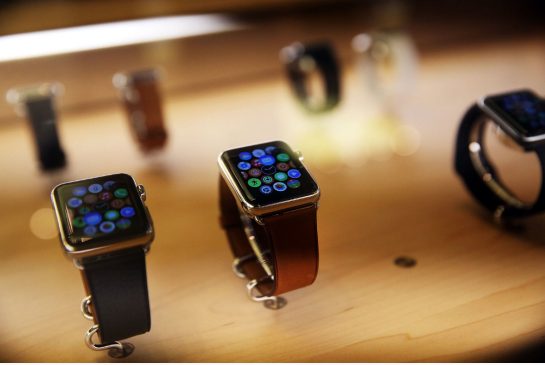-
Tips for becoming a good boxer - November 6, 2020
-
7 expert tips for making your hens night a memorable one - November 6, 2020
-
5 reasons to host your Christmas party on a cruise boat - November 6, 2020
-
What to do when you’re charged with a crime - November 6, 2020
-
Should you get one or multiple dogs? Here’s all you need to know - November 3, 2020
-
A Guide: How to Build Your Very Own Magic Mirror - February 14, 2019
-
Our Top Inspirational Baseball Stars - November 24, 2018
-
Five Tech Tools That Will Help You Turn Your Blog into a Business - November 24, 2018
-
How to Indulge on Vacation without Expanding Your Waist - November 9, 2018
-
5 Strategies for Businesses to Appeal to Today’s Increasingly Mobile-Crazed Customers - November 9, 2018
Apple Announces New ResearchKit Studies for Autism, Epilepsy & Melanoma
Using the firm’s popular iPhone, it’s hoped doctors, scientists and other researchers can gather comprehensive data on autism, epilepsy and melanoma.
Advertisement
The new studies are being run by researchers in Duke University, Johns Hopkins and Oregon Health and Science University.
Apple is expanding its open source framework for medical studies to study three new fields.
In a prepared statement found on Apple’s press release, Jeff Williams, Apple’s senior vice president of Operations stated that “We’re honored to work with world-class medical institutions and provide them with tools to better understand diseases and ultimately help people lead healthier lives”.
ResearchKit studies generally have higher signup rates than traditional medical studies, with more than 100,000 participants contributing their data to the iPhone-based platform since its wide launch in April 2014.
Lastly, the autism study, led by Duke Universtiy, will focus on detecting developmental issues by capturing emotion using the front-facing camera on the iPhone. The first ResearchKit study to involve the Apple Watch, the app will look at whether Apple’s new wearable device can detect the onset and duration of seizures. A mole that changes shape or color over time can be a warning sign of melanoma, and Knight Cancer Institute researchers hope the data they collect from all those mole photos will help them develop melanoma-detecting algorithms.
Apple doesn’t get anything out of it. It is even dedicating resources to improve the framework by regularly adding new features.
Access to the accelerometer, microphone, gyroscope and Global Positioning System sensors in iPhone deliver additional insight into a participant’s gait, motor impairment, fitness, speech and memory, delivering more objective data to medical researchers. “If we can identify melanomas earlier by creating a simple way for patients to share images of their moles we can learn more about the progression of the disease”, said Sancy Leachman, M.D., Ph.D.
Advertisement
The idea behind ResearchKit is that it should be easier to make contributions to medical research. But now we have official word from Apple on ResearchKit’s success: More than 100,000 people are using ResearchKit apps, which means scientists now have access to hundreds of thousands of data points they wouldn’t have had before.





























